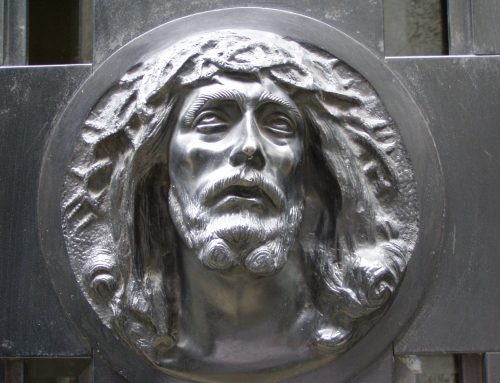“Then the devil took him to Jerusalem, and placed him on the pinnacle of the temple, saying to him, ‘If you are the Son of God, throw yourself down from here, for it is written, “He will command his angels concerning you, to protect you”, and “On their hands they will bear you up, so that you will not dash your foot against a stone.” ’ Jesus answered him, ‘It is said, “Do not put the Lord your God to the test.” ’ When the devil had finished every test, he departed from him until an opportune time.” (Luke 4:9-13) I think that one of the most important things that I learned in seminary was from one of my New Testament professors. Dr. Bob Lyon never seemed to stop saying, “C.I.E.,” which was shorthand for “context is everything.” By this he stressed the importance of always reading individual passages within the larger story. Dr. Luke’s version of Jesus’ temptation in the wilderness is an excellent example of that. He does first tell the story of Jesus’ baptism in which his Father bears testimony to him as his beloved son. But unlike Matthew and Mark, Luke decides to insert a little “23 and me” before the temptation. Luke gives us Jesus’ genealogy which concludes: “son of Methuselah, son of Enoch, son of Jared, son of Mahalaleel, son of Cainan, son of Enos, son of Seth, son of Adam, son of God.” (Luke 3:37-38) So enter Satan with his query, “If you are the Son of God…” The adversary questions Jesus’ lineage and proposes exactly the wrong way to prove it. “If you really belong to him, then he will most certainly protect you from all harm and cause you to always prosper, won’t He?” If you really are in God’s family (his daughter, his son) than you too will be safe and secure at all times, right? Jesus answers the question from the Scripture but then he sets forth into him ministry, eventually leading to Jerusalem. In that way, with even greater profundity, Jesus turns aside Satan’s temptation and answers him with his life that reveals to us the great revelation of who God is and who we are in relationship to him. Divine rescue often does not come before or from suffering, but through it. Therefore, unlike Adam, the son of God, Jesus the Son of God both gives us an example and creates a way for us. We are once again setting forth on our Lenten journey. It seems to me that the only way to walk this path in good times and in bad is with the knowledge that the Son of God has already walked it. And with that knowledge you and I are empowered not only to walk it for ourselves, but to offer hope and comfort to others who have either forgotten or have never known the Son of God. Therefore, he bids us to follow with hope and joy. Have a great week!







Leave A Comment